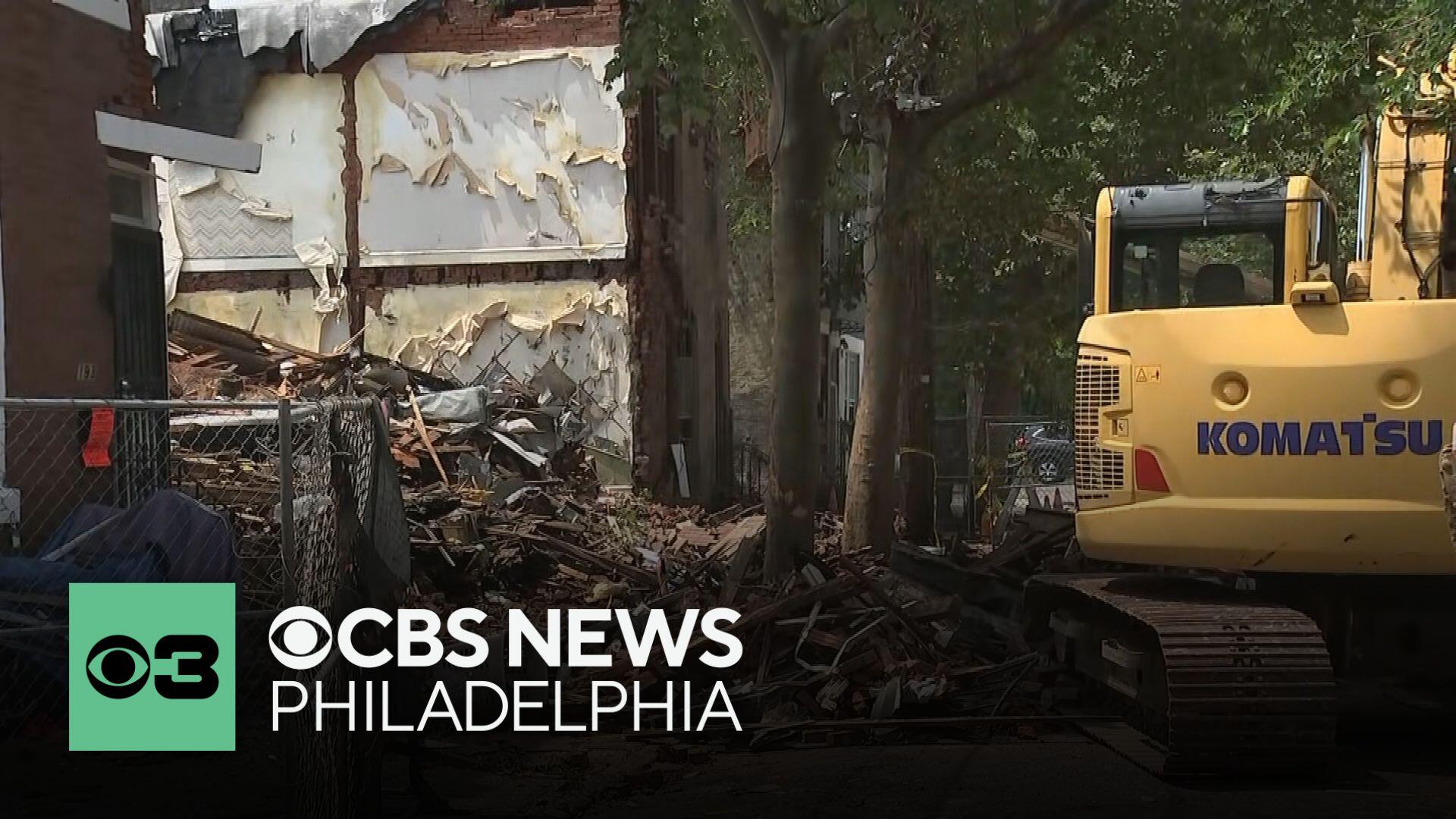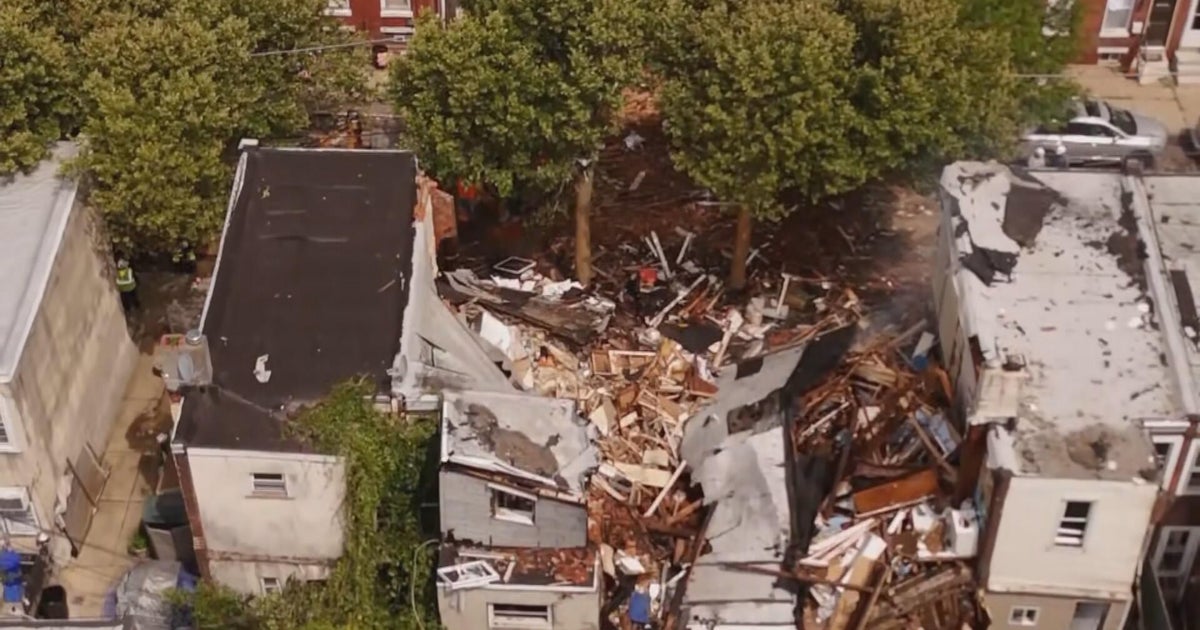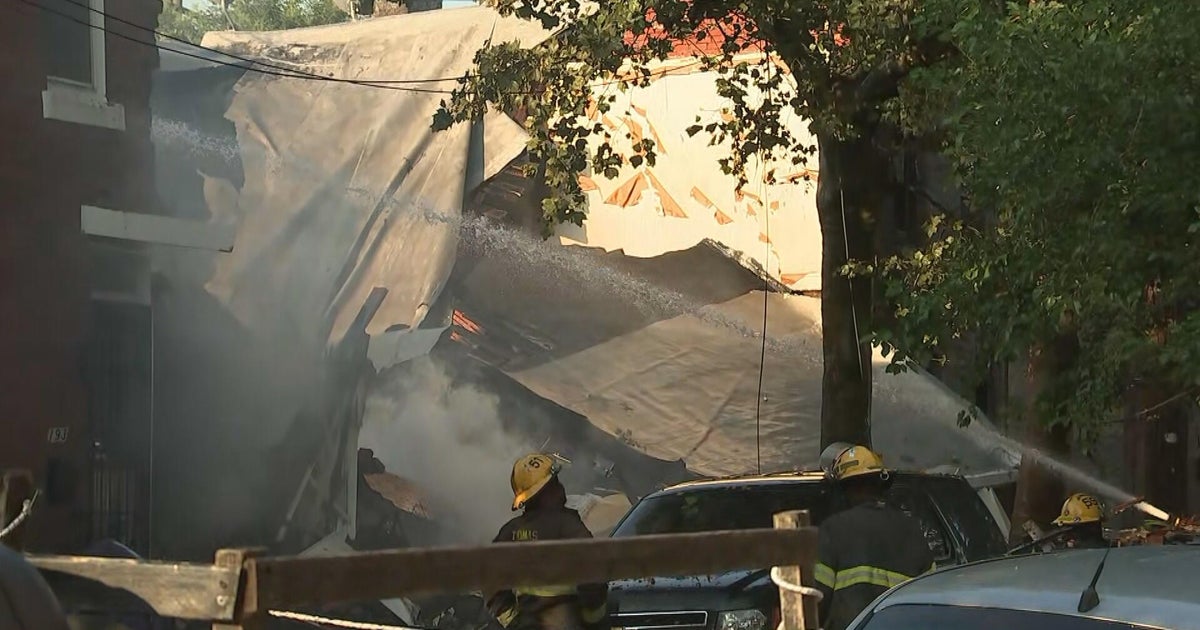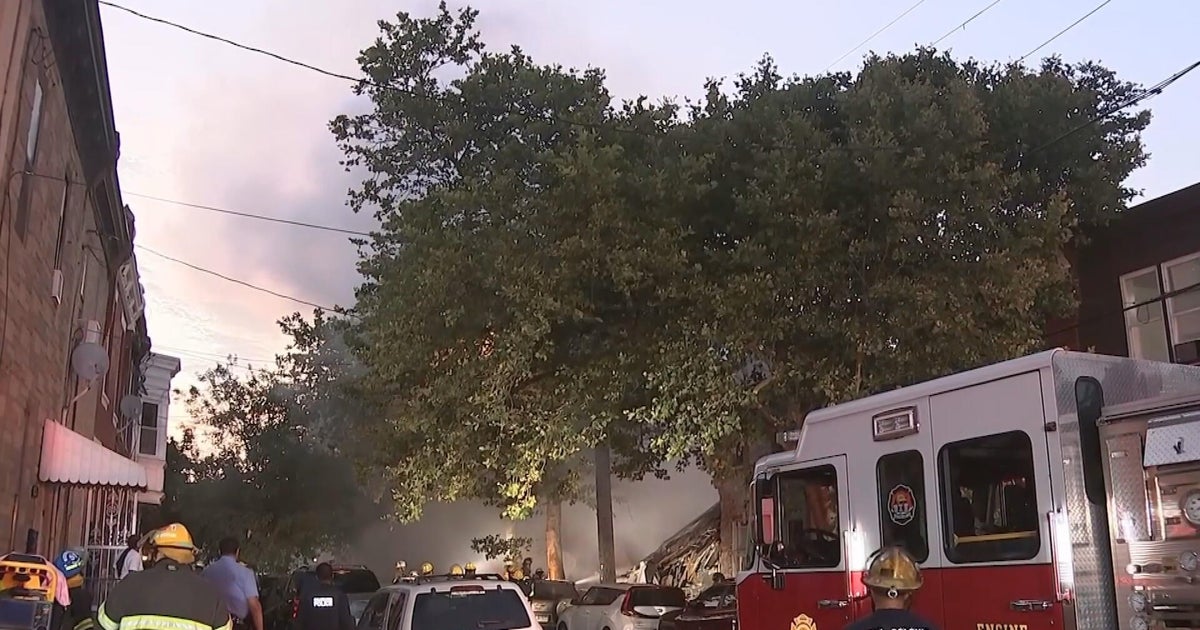Deadly explosion in Philadelphia's Nicetown neighborhood could be gas-fueled, source says
There's still a long way to go before determining what caused the deadly explosion in Philadelphia's Nicetown neighborhood Sunday morning.
Before investigators can begin to look for clues as to what caused the Sunday morning blast, the city's Department of Licenses and Inspections must clear the site to ensure it's safe enough for fire marshals to investigate.
Pipeline safety expert Richard Kuprewicz says explosions of this magnitude, which damage several homes, are often fueled by gas. A source tells CBS News Philadelphia that state investigators are looking at this as a possible cause.
There have been at least two other rowhome explosions in Philadelphia in the last six years.
"You know, some of the gas lines, especially in Pennsylvania, are of a material that doesn't handle aging well, like cast iron," Kuprewicz said.
In 2019, a multi-house explosion in South Philly left two people dead. Years later, state investigators said it was caused by a cracked underground gas pipe due to unstable soil caused by water leaks and excavations to repair nearby pipes. The investigation found that Philadelphia Gas Works failed to adequately monitor pipeline maintenance and replace or repair the unsafe portion of the pipe. PGW did not admit fault and cited concerns over unlicensed plumbing contractors.
In 2023, in Port Richmond, there was another similar scene when a rowhome explosion injured several people. That time, state investigators did not find any evidence that public utility equipment caused the blast.
"Mainly, the flammable gas comes together in such a manner that it has the fuel, it has the oxygen, in the right level of oxygen concentration that can occur in a confined area, and then it needs an ignition source and that can be a spark, could be a fire, or static electricity," Kuprewicz said.
State investigators from the Public Utilities Commission have been on-site since Sunday, working alongside the fire department and other agencies, including PGW. The National Transportation Safety Board is also gathering information, a standard practice for the bureau. As of now, the NTSB has not opened an investigation.




